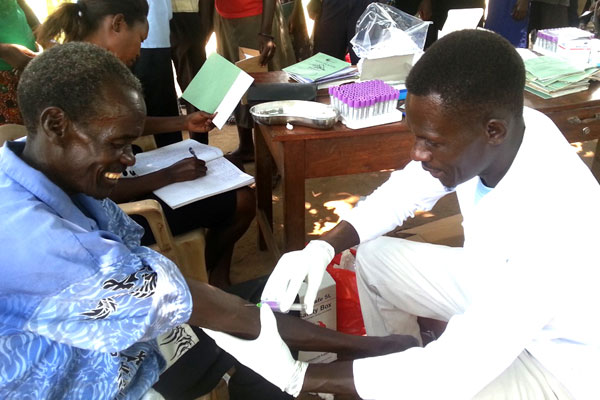Uganda is a step closer to achieving 90 per cent of the people living with HIV/Aids having the amount of the virus in their bodies suppressed by 2020, as one of the global targets set to end the Aids epidemic.
The move is based on the findings by the Ministry of Health indicating that 83.5 per cent of the people living with HIV/Aids have suppressed their viral load, meaning that they can hardly infect their sexual partners or even succumb to the disease.
In 2014, the United Nations Programme on HIV/Aids (UNAids) set the 90-90-90 global targets to have 90 per cent of people living with HIV/Aids tested, 90 per cent of those found HIV positive put on treatment, and 90 per cent of those on ARVs have their viral load suppressed.
Dr Shaban Mugerwa, the head of the care and treatment team at Ministry of Health, said the country is doing well on the first 90 per cent (of people living with HIV/Aids), with 66.2 people living with HIV/Aids tested of which 88.4 per cent have been put on anti-retroviral drugs (ARVs), and out of which 83.5 per cent have an undetectable viral load.
Dr Mugerwa made the revelation on Friday during an interview with this newspaper ahead of the 2018 International Aids conference which starts today, and runs up to July 27. It will be hosted in Amsterdam, Netherlands.
The 22nd Aids conference is organised under the theme; “Breaking Barriers. Building Bridges.”
It aims at drawing attention to the need of rights–based approaches to more effectively reach to key populations, including in Eastern Europe and Central Asia and the North African /Middle Eastern regions where epidemics are growing.
Dr Mugerwa attributed the success to the robust response done by the government to increase both treatment and viral load testing services with many players across the country through private public partnerships with hospitals.
As a result of the concerted efforts to fight HIV/Aids, he said the number of HIV-related deaths have drastically reduced from 64,000 registered annually in the late 90s down to 26,000 in 2016.
However, our repeated efforts to talk to the different Aids support organisations, including Uganda Aids Commission, National Organisation of people Living with HIV/Aids in Uganda and The Aids Support Organisation since Saturday were futile.








